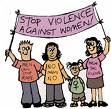On Monday morning, when the images of a Mozambican man’s horrific death by burning at the hands of a rampaging mob of South Africans hit international headlines, the dream that once was our nation died along with him.
The years of hard work, of reconciliation, of goodwill and of international acceptance went up in flames along with his flesh as our rage, heartlessness and loathing of our fellow Africans was laid bare for the world to see.
The innocence that once cloaked our democracy was ripped to shreds and the monster that we have become was hurled, naked and seething, into the international psyche.
We, like so many nations, had become the oppressors we fought against, the tyrants we unseated, the cynical murderers we thought we had defeated. In two short weeks, we destroyed the dream that so many fought and died for.
This was not an accident. Since 1994, the government we elected has failed us terribly in its handling of migration.
Moves by then Home Affairs Minister Mangosuthu Buthelezi to enact more progressive legislation were stymied by the ANC, purely for narrow political purposes, while his successor has proved to be little more than a puppet for a President whose inability to understand his nation is now legendary.
As the influx of foreigners grew — fuelled by the meltdown of Zimbabwe in which our government is also complicit — it was met by a total lack of empathy and vision.
The implementation of heartless Home Affairs policies stoked the flames of xenophobia.
When places of refuge for those who have fled a low-intensity civil war become soft targets for police; when people are arrested on the basis of their pigmentation or their accent; when top members of the ruling party make money on the side running repatriation camps; when refugees are criminalised, we set the scene for criminals to act with impunity against the most vulnerable people in our society.
Our government fostered hatred by institutionalising the idea of our fellow Africans being outsiders whose presence cannot be tolerated, who are less than us, whose darkness of skin and difference of tongue makes them less than men and women. Our leaders speak of noble concepts like the African renaissance while declaring fellow Africans to be outsiders who are not wanted.
The response to the wave of mindless killings also leaves much to be desired. Claims by police and intelligence bosses that this is the work of a shadowy force do nothing to help. If they are true, this tells us that the government knew what was going to happen and failed to act. This makes it culpable, given the abuse of the intelligence services by factions within the ANC in their internal power struggle. Had they been performing their constitutional role, would not much of this mayhem have been avoided?
If they are lies, then these claims are another example of the Mbeki administration’s inability to accept failure, and its propensity to blame all wrongs on mysterious forces because of arrogance and an inability to understand the nation it claims to represent.
To resort to buck-passing in the face of such madness on our streets is in itself criminal.
The decision to deploy the military is not an easy one to live with. Under normal circumstances, their role should be to protect us from external threats, not ourselves, but the intervention is welcome — as long as it does not become a permanent fixture of South African life. The military’s role needs to be one of supporting the police while they root out those responsible for the looting, killings and beatings and make an example of them.
There are millions of marginalised South Africans who live in abject poverty and who have been failed by those they voted for. But no level of poverty can excuse what is happening. The culture of impunity within which thugs are acting needs to be broken. Now.
All of us — and our leaders in particular — need to remember the generosity and humanity that informed the Freedom Charter and our Constitution, and feel shame at what has been allowed to happen.
We need an extensive national project to instil tolerance, understanding of diversity and acceptance of difference among our people, to enact more humane immigration laws, to end the culture of criminalising those who turn to us for refuge and to ensure that those cruel and ugly people with blood on their hands pay for their actions.
We can no longer deny what we have become as a nation.
( Source: www.iol.co.za )
Nikolas pressiona Alcolumbre, presidente do Senado, para pautar Impeachment
de Toffoli
-
O deputado federal Nikolas Ferreira (PL-MG) usou suas plataformas digitais
para fazer um apelo público ao presidente do Senado, Davi Alcolumbre
(União-AP)....
17 hours ago

























No comments:
Post a Comment